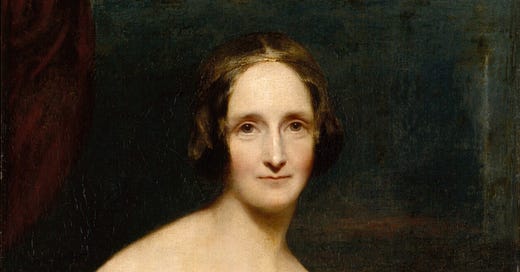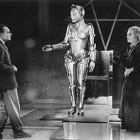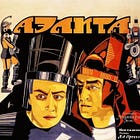Women Pioneers in Sci-Fi: Breaking New Ground in a Genre of Possibilities
These pioneer women have not only written some of the most thought-provoking and influential works in the genre but have also redefined the way we perceive gender, identity, and power.
Science fiction, a genre known for its exploration of the unknown and the limitless boundaries of human imagination, has not only challenged the boundaries of what's possible in the realm of storytelling but has also served as a platform for the exploration of gender roles and identity. While science fiction has historically been dominated by male voices, there is a rich tradition of women pioneers who have made significant contributions to the genre, shaping its narrative landscape and opening new frontiers for both female creators and audiences.
In this post, we will embark on a journey to celebrate and honor the remarkable women who have left an indelible mark on science fiction. These pioneers have not only written some of the most thought-provoking and influential works in the genre but have also redefined the way we perceive gender, identity, and power.
Mary Shelley: The Mother of Science Fiction
We begin our exploration with none other than Mary Shelley, often referred to as the "Mother of Science Fiction." Her novel "Frankenstein; or, The Modern Prometheus," published in 1818, is widely regarded as one of the earliest science fiction works. Shelley's creation of the iconic character of Frankenstein's monster raises profound questions about the consequences of scientific discovery and the essence of humanity, topics that continue to resonate in modern science fiction.
Ursula K. Le Guin: A Trailblazer in Speculative Fiction
Ursula K. Le Guin, a prolific and visionary author, has made immense contributions to speculative fiction. Her works, including "The Left Hand of Darkness" and the "Hainish Cycle" series, have not only challenged traditional notions of gender but have also explored complex themes of identity, anthropology, and sociology. Le Guin's writing invites readers to ponder the fluidity of gender and the intricacies of human connection.
Octavia E. Butler: Shaping Afrofuturism
Octavia E. Butler stands as a pioneering force in science fiction, with works like the "Patternist" series and the "Parable" series. Her contributions to Afrofuturism have been groundbreaking, offering narratives that delve into racial and gender dynamics in a futuristic context. Butler's storytelling empowers women and people of color, emphasizing the importance of diversity in the genre.
Margaret Atwood: Crafting Dystopian Worlds
Margaret Atwood, renowned for her dystopian fiction, has explored themes of power, gender, and societal control in works like "The Handmaid's Tale." Her dystopian narratives serve as cautionary tales, sparking discussions about reproductive rights, women's autonomy, and the consequences of patriarchal systems.
N.K. Jemisin: Award-Winning World Builder
N.K. Jemisin, a recent luminary in science fiction and fantasy, has garnered critical acclaim for her "Broken Earth" trilogy. Her work challenges conventions in both storytelling and gender representation, while her imaginative world-building paints a rich tapestry of diverse characters and societies.
The contributions of these women pioneers in science fiction extend far beyond the pages of their novels. They have shattered glass ceilings, ignited conversations about gender and identity, and demonstrated the transformative power of storytelling. As we celebrate these trailblazers, let us remember that science fiction is a genre of possibilities, and it's the voices of diverse creators, regardless of gender, that continue to push the boundaries of the unknown and inspire us to explore the uncharted territories of human experience.









